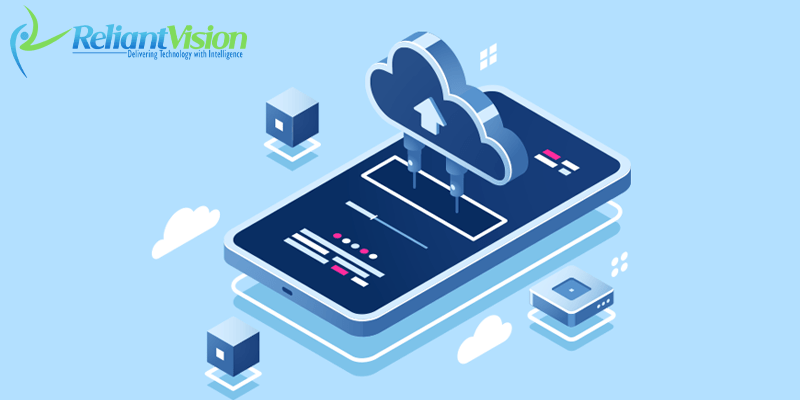The smartphone along with the internet revolution is enabling app developers and customers to store and interact with the data like never before. The availability of unlimited storage and processing power of the cloud has resulted in developers reaching new levels of functionalities.
However, some enterprises are still hesitant of incorporating cloud computing within their mobile app development process. In recent years, mobile cloud computing apps has risen in popularity. A study undertaken by Cisco Global Cloud Index predicted that cloud apps would drive 92% of the global mobile data traffic by the end of the year.
Companies need to adopt cloud computing for mobile apps (with the expansion in cloud technology) if they want to get success in their business endeavors. For those who are novice about the terms cloud computing and cloud mobile app, they can read on the definitions given under below mentioned headings-
Cloud Computing – What is it?
Cloud computing in simple terms can be defined as on-demand network access to a pool of resources without any interaction with the service provider. Overall, cloud computing allows its users or clients easy and quick access to resources like mobile apps, software and other services on demand and are charged based on their usage.
Cloud computing in simple terms can be defined as on-demand network access to a pool of resources without any interaction with the service provider. Overall, cloud computing allows its users or clients easy and quick access to resources like mobile apps, software and other services on demand and are charged based on their usage.
Users of cloud computing can adjust their computing capacity depending on their requirements for a given task at a given time. They need not have to take into account the processing power or storage and get the desired results without compromising on the quality.
Cloud Mobile Application or Cloud Mobile App – An Introduction
A mobile cloud app is a mobile application that can be operated and accessed through the cloud. Its processing is carried out on a remote cloud server and has native features. The popular cloud mobile apps include – Dropbox, Apple iCloud Services etc.
A mobile cloud app is a mobile application that can be operated and accessed through the cloud. Its processing is carried out on a remote cloud server and has native features. The popular cloud mobile apps include – Dropbox, Apple iCloud Services etc.
The Impact of cloud computing in Mobile App Development – A study
Cloud computing in mobile apps has provided an enormous opportunity to developers to add innovative features in apps along with the following advantages as mentioned below-
- Reduction in cost
The app development cost has reduced phenomenally in recent years due to cloud apps, as developers just need to develop only one app that can run on multiple platforms.
The use of a single codebase is emerging as an ideal choice for startups, small businesses, who do not have massive budgets for funding native mobile apps for Android and iOS. Even the maintenance costs associated with the apps has come down drastically due to cloud apps that used to be about 28% of the total app development cost.
The use of a single codebase is emerging as an ideal choice for startups, small businesses, who do not have massive budgets for funding native mobile apps for Android and iOS. Even the maintenance costs associated with the apps has come down drastically due to cloud apps that used to be about 28% of the total app development cost.
- Scalability
- Platform Compatibility
- Can work within a limited storage space
Challenges for cloud computing in mobile apps – An Overview
Cloud computing in mobile apps does have some challenges that hinder the ubiquity of cloud-based apps. These include-
Finally, it can be concluded that the sky is the limit for using cloud computing in mobile apps. As the technology in cloud computing further develops, it is expected that companies/governments would come forward in resolving issues of data security, confidentiality, and privacy when using cloud computing in mobile apps.
Cloud computing in mobile apps does have some challenges that hinder the ubiquity of cloud-based apps. These include-
- Information security
- Internet speed and connectivity
- Resource deficiency of mobile devices
Finally, it can be concluded that the sky is the limit for using cloud computing in mobile apps. As the technology in cloud computing further develops, it is expected that companies/governments would come forward in resolving issues of data security, confidentiality, and privacy when using cloud computing in mobile apps.

